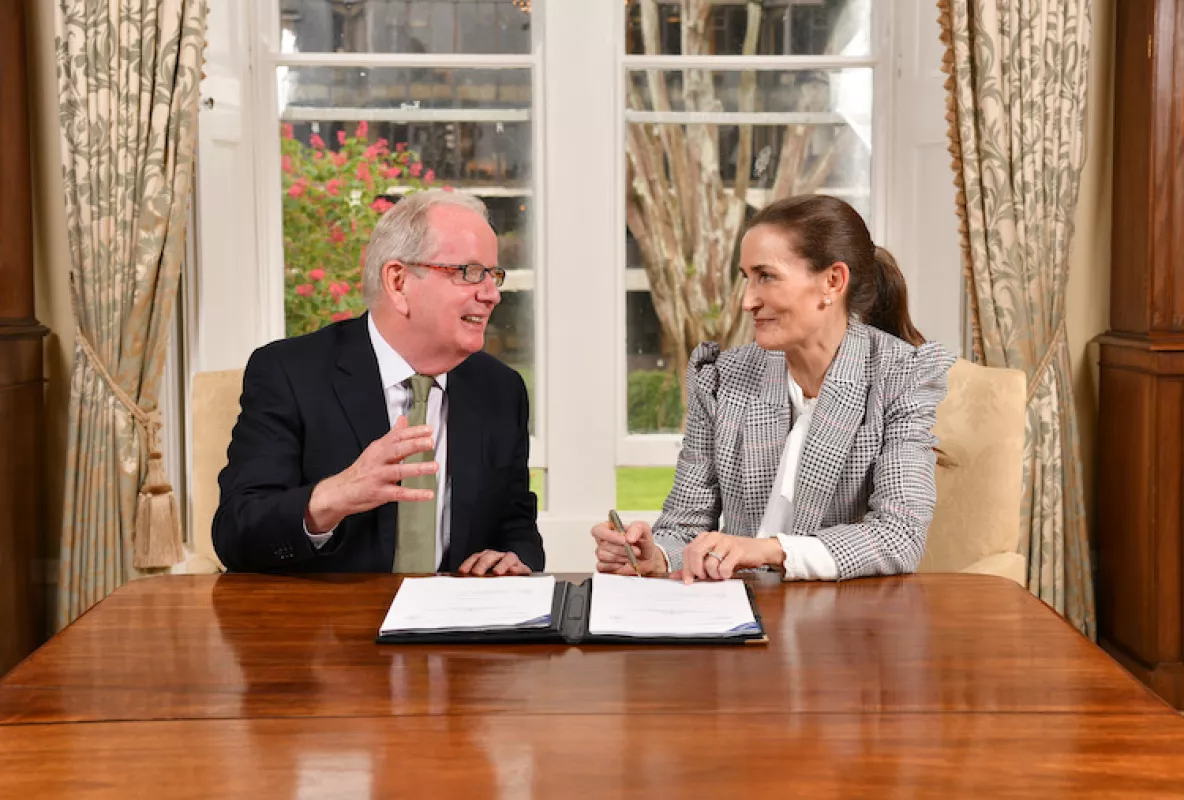
THE University of Limerick’s City Campus has taken a major leap forward following the signing of contracts to purchase the Dunnes Stores site in Limerick city.
UL President Dr Des Fitzgerald has confirmed that contracts have now been formally signed with Dunnes to acquire the 5,500 square meter former shopping centre, paving the way for the development of a UL City Campus.
The purchase of the Dunnes Stores site on the river at Sarsfield Bridge, represents the largest ever development in Higher Education in Limerick city centre. Dr Fitzgerald paid tribute to Dunnes for facilitating the deal and for the retailer’s support for the plans for a city centre campus.
“I am delighted to announce that we have now formally signed contracts with Dunnes on the acquisition of the riverside site at Sarsfield Bridge which will bring UL directly in to Limerick city and contribute in a major way to the city’s rejuvenation,” Dr Fitzgerald said.
“Connecting this campus with the city has been a dream for everybody associated with the university for years,” he added.
Dr Fitzgerald made the announcement at the annual President’s Gala Dinner hosted by the University of Limerick Foundation. The fundraising dinner is taking place in Adare Manor this Friday evening and is being attended by 350 guests including the Chancellor of the University, Ms Mary Harney, and the Chairperson of the University of Limerick Foundation, Ms Loretta Glucksman.
Separately, Dr Fitzgerald has also confirmed that UL is to start construction on a new access route on the northern part of the campus, opening it up for the first time to County Clare. The access route will facilitate the plans of Clare County Council to develop an economic strategic development zone adjoining the campus.
Speaking this Friday, Dr Fitzgerald said that the developments were part of the University of Limerick’s strategy to prepare for the next fifty-years.
“If the University is to continue to be an important part of the regional infrastructure, we need to plan now for the needs of the region over the coming decades,” he said.
“We can’t let the University be defined simply by its location close to Limerick city. We must create a regional and national institution which will support economic, cultural and social development right across the region and indeed more widely across the country for decades to come,” he added.